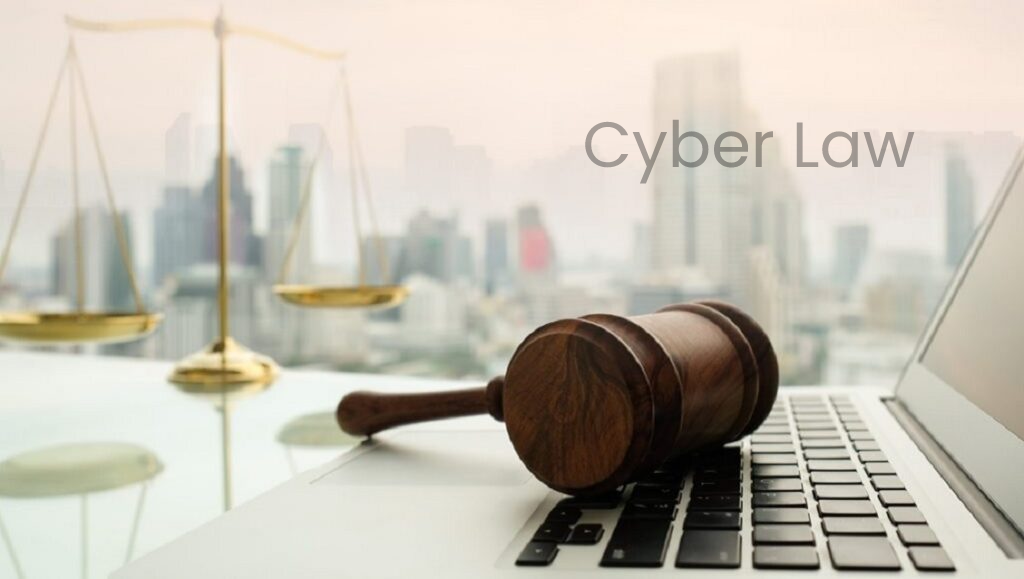Cyber law is a growing legal area that includes many legal issues related to the Internet. These include intellectual property rights, privacy, and e-commerce.
The Internet has expanded to 4.5 billion people worldwide, making it essential for every person and company to abide by cyber law. Understanding cyber law can help you protect yourself and your business from online fraud.
Legal Issues
Cyberlaw is the law that governs the use of the Internet and all its devices. It covers everything from communications to data privacy and intellectual property. It is a relatively new area of law that is rapidly growing and expanding.
So what is cyberlaw definition? Cyber laws are critical to ensuring a safe and secure online environment. They regulate the activities of individuals, businesses, and organizations and establish penalties for people and groups that commit cybercrime.
These laws also protect the rights of the owners of personal information. This includes the right to be informed about how a business uses its knowledge and the ability to control what is collected.
It is important to understand how these laws affect your business, whether you have a website or not. A good business lawyer can help you determine how these laws apply to your company and what steps you should take to ensure that you are not breaching any of them.
Digital legalities cover a wide range of issues, from free speech to harassment. They also include cyberbullying, identity theft, and fraud.
The Internet has revolutionized communication, allowing anyone to produce and distribute content for profit. There is no shortage of opportunities for content creators, from movies or music to how-to videos.
However, some things can be done on the Internet that is illegal and that is not within the limits of free speech. For example, if someone posts harassing or stalking statements on the Internet, this can be considered a violation of both criminal and civil laws.
Regulations
As the world’s digital infrastructure grows and expands, regulations are needed to protect users of this technology. These laws regulate how individuals and businesses use online information, devices, and software. They also establish penalties for cybercrime, such as hacking or trojan attacks.
In addition to regulating how people and businesses use cyberspace, cyber law is also essential in helping companies protect their intellectual property (IP) and trade secrets. For example, many companies rely on cyber law to help protect the algorithms used to produce search results and other website features.
Cyber lawyers often work on high-stakes cases. For example, if a company’s IP or other personal information is stolen, it could harm its business and public image.
Another area where cyber law is essential is in contract disputes. For example, if you buy something on an e-commerce site that needs to be delivered as promised, the company may have breached its contractual obligations.
Some other areas where cyber law is essential to include privacy laws and government regulations. For example, the California Consumer Privacy Act (CCPA) requires all businesses to protect the personal information of citizens in the state.
In order to be compliant with these laws, businesses need to understand how each one applies to their specific business model. It’s important for firms and their leaders to build knowledge of these laws to talk intelligently with their legal and cybersecurity teams about how to comply with them.
Enforcement
Our digitally connected world is prompting governments to focus on new laws, regulatory initiatives, investigations, and court proceedings to govern online conduct. These laws address cybersecurity and data privacy, among other issues.
Cyber laws are a subset of the overall legal system that deals with law related to information systems, computers, software, and hardware. They regulate online activities such as communications, freedom of speech, and intellectual property rights.
These laws help protect people, businesses, and organizations from unauthorized access to the Internet and malicious people who try to steal your data or other information from your computer. They also prevent people from using stolen credit cards or identity theft, and they establish penalties for those who commit online crimes.
Cyber-criminals affect all users, including libel or slander, intellectual property theft, hacking, fraud, and copyright infringement. Some of these crimes are considered criminal offenses in most states, such as spoofing or distributing child pornography, credit card fraud, and human trafficking.
Another type of cybercrime is DDoS or botnet attacks, which involve flooding websites with traffic and stealing or extorting money from the site owners. These attacks are often targeted at large, well-known sites.
Other issues include the use of spyware and adware, which can be used to gain access to sensitive data. These threats are a growing concern, and cyber law experts recommend installing only trusted programs to prevent these problems.
Cases
In the world of cyber law, there is a vast amount of litigation and disputes. These cases range from high-stakes domain disputes to employment disagreements and contract disputes that can have an impact on a company’s future.
In addition, the debates over online free speech and net neutrality are ongoing. This means that lawyers may need to stay current on these topics and help their clients advocate for laws that work to their benefit.
Defamation is another issue that cyber lawyers may be involved in. They must help their clients understand how to defend against defamation claims. They can also represent a client who is being accused of defamation and try to obtain a subpoena from the judge to find out the identity of the alleged defamer.
Copyright infringement and trade secret protection are other areas where cyber lawyers can work for their clients. These legalities are vital to businesses that use technology to create products and services.
Cyber lawyers may also work to protect consumers from identity theft and other financial crimes that occur online. They may work to prosecute and defend against these crimes, which can lead to criminal charges or civil actions filed by the victim.
Cyberlaw is a growing area of law with many challenges and opportunities for lawyers interested in working on this type of case. Attorneys need to know the Rules of Civil Procedure and the Rules of Evidence in order to build a strong case that will win their client’s favor.




